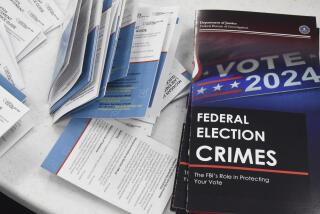A defiant Argentina presses forward with new debt repayment mechanism
Argentina on Tuesday deposited $161 million with a new domestic entity established to sidestep a U.S. court ruling prohibiting Buenos Aires from servicing rescheduled debt until it settles with a small group of holdout hedge funds.
The money was placed with Banco Nacion’s Nacion Fideicomisos trust a day after U.S. District Court Judge Thomas Griesa declared Argentina in contempt for not obeying his ruling to pay the hedgefund plaintiffs more than $1.3 billion.
“From the moment of their deposit, the funds are no longer the property of the Argentine Republic and constitute trust assets ... that will be applied by the Fiduciary exclusively to payment of interest on the Bondholders’ Debt Instruments,” the Economy Ministry said in a statement.
Argentina “ratifies once again its unshakeable committment to fulfill all of its obligations to the Bondholders,” the ministry said.
Griesa’s decision to find Argentina in contempt has “no kind of reason, foundation, nor impact,” Cabinet chief Jorge Capitanich said Tuesday.
Argentina defaulted on roughly $100 billion in debt in December 2001 at the time the largest sovereign default in world history amid a financial meltdown and economic depression.
More than 92 percent of Argentina’s creditors accepted steep haircuts in 2005 and 2010 debt restructurings.
But a small group of holdouts that bought Argentine debt in the wake of the 2001 default have refused to accept the swaps and are continuing to seek 100 cents on the dollar for their bonds.
Among the holdouts are several hedge funds, led by Elliott Management Corp.’s NML Capital Ltd unit and Aurelius Capital Management, that sued Buenos Aires in the U.S. courts for full payment on bonds they bought at large discounts in 2002.
In 2012, Judge Griesa ordered Buenos Aires to pay the litigants more than $1.3 billion. Argentina’s appeal of the decision reached the U.S. Supreme Court in June, but the justices declined to hear the challenge.
As part of that 2012 judgment, Griesa issued an injunction based on a clause in the bonds that states that all bondholders must be treated equally that bars Argentina from paying the exchange bondholders before settling with the holdouts.
Griesa’s injunction prevented Argentina’s U.S. trustees, Bank of New York Mellon and Citibank, from releasing funds deposited by Buenos Aires to meet an interest payment due June 30.
Last week, Griesa allowed Citibank to process its portion of the payments to holders of restructured Argentinelaw government bonds, though he set another hearing in 30 days so the hedge funds can seek to reverse the decision and block future payments.
Argentine President Cristina Fernandez has refused to settle with the holdouts, saying full payment to the hedge funds would lead other holdout bondholders to demand the same, creating a potential liability of some $15 billion, equivalent to roughly half of Argentina’s foreignexchange reserves.
The law the Argentine Congress passed earlier this month creates a mechanism for the holders of the restructured debt to receive payments in Argentina or France.
“The decision by Judge Griesa has no practical effects beyond providing new elements in the defamation campaign being waged against Argentina by vulture funds,” President Fernandez said late Monday following the contempt citation.
She called Griesa’s action a “violation of international law, the U.N. Charter and the Charter of the Organization of American States.”
“Griesa holds the sad record of being the first judge to declare a sovereign state in contempt of court for paying a debt, after failing in his attempt to obstruct Argentina’s external debt restructuring,” she said.
The origins of the debt problem go back to Argentina’s 19761983 military regime, which presided over a 465percent expansion in public indebtedness.









